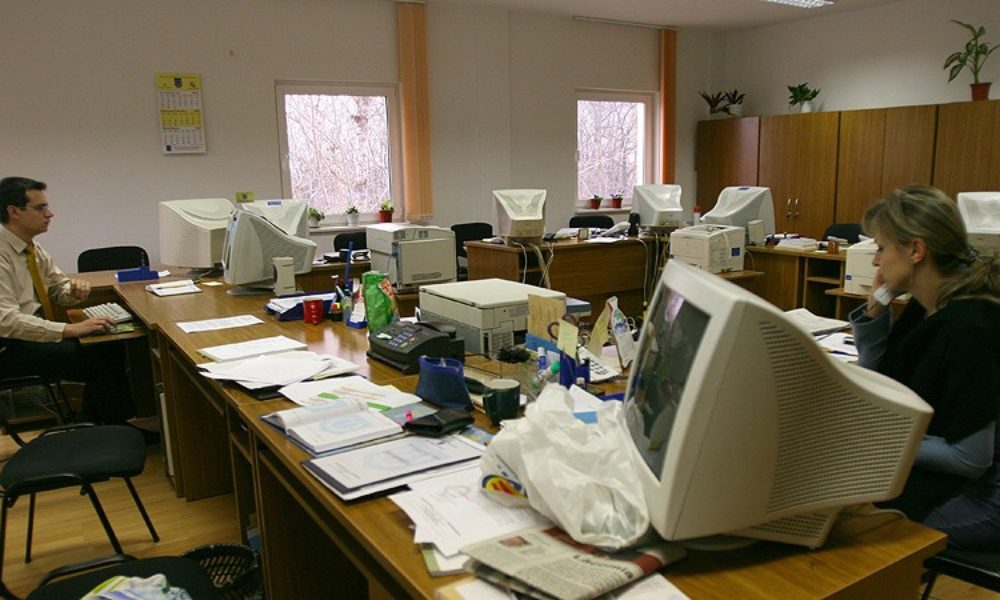Inspection: Inez Weski was unlawfully detained after her arrest
:format(webp)/s3/static.nrc.nl/bvhw/files/2024/05/data115021775-222adb.jpg)
Former criminal lawyer Inez Weski was locked up two years ago after her arrest at « a secret location of the Judicial Institutions Department that was not in accordance with the law ». This is the conclusion of the Justice and Security Inspectorate after its own investigation into the detention of Weski.
Two years ago she was arrested on suspicion of participating in a criminal organization that is working on international drug trafficking and money laundering. According to the Public Prosecution Service, the lawyer is said to have passed on messages to and from her client Ridouan Taghi, who has been detained in the extra secure institution in Vught since his arrest in Dubai in 2019.
Weski was housed in an atomic bunker at the Air Force Base Soesterberg for the first days of her detention
The inspection announced on Monday that Weski was taken to a non -recognized and controlled place after her arrest. « Her stay there was contrary to the Penitentiary Principles Act and the International Convention on Protection of all Persons against forced disappearance (ICPPED), » writes chief inspector Hans Faber to the State Secretary for Justice.
Opposite NRC Weski says that these findings may result in the inadmissibility of the OM in its case.
‘Hallucinant’
The Justice and Security Inspectorate decided to investigate Weski’s detention following the book that she published about this case last year: The sound of silence. She describes that from 24 April 2023 to 2 May 2023 she was stuck at a secret detention location. Weski opens the book with how she is ‘buried’ in a prison chat that is built in ‘a renovated bunker’. « Deep underground. It was hallucinatory. »
Weski writes in her book to fear that the OM wanted to kill her. In An interview with NRCin April last year, Weski stated that « she was (with an enormous power) arrested and put in a cell with doors and windows so thick that no sound penetrated. I had to communicate through an intercom that was often not working. While it was known to be able to experience a case of need for help. Then it would have been a geomst at the head; Is there no more reply of me. «
The perhaps vain hope is of course that the Public Prosecution Service will repent
Weski was housed in an atomic bunker at Soesterberg Air Force Base for the first days of her detention. According to judicial sources, that happened to be able to protect her against possible actions from the underworld.
According to the inspection, no supervision was held at the location. That is contrary to the Penitentiary Principles Act and the ICPED Convention. « This Convention states that no one should be kept in secret detention and that the Dutch state must ensure that anyone whose freedom has been deprived exclusively can be detected for this purpose officially recognized and controlled places. »
The inspection also states that there was no « transparency » about Weski’s imprisonment. « With that she was (…) partly out of the protection of the Penitentiary Principles Act. For example, there was no supervision committee in which Weski was rightly with complaints while the law prescribes it. Nor was it announced who was the responsible director of the location and to whom she could submit a complaint about her stay. »
Read also
A rare look in the mirror of a self -conscious criminal lawyer
‘Quatsch’
Inez Weski is happy with the judgment of the inspection. « After two years of fruitless attempts to bring research on that underground atomic bunker where I was buried alive, the arrival of this inspection report has finally been confirmed by what has taken place in violation of the law and international treaties. »
The boss of the Public Prosecution Service Rinus Otte said in the television program last year WNL on Sunday That Weski’s accusations about her unlawful detention were « total nonsense » and « quatsch ». Opposite NRC Repeated Otte This later. « I think we know an extremely high quality in the detention reading. The judge tests everything. Do you think a judge would have legitimized such an illegal, torture situation in a preliminary guide? Then we would not be a very corrupt rule of law, do you not think? »
Otte was not available for comment on Monday.
Criminal case
Weski praises the inspection for « the courage to conduct this investigation. Unfortunately, my trial seems to be unraveling as a series of fundamental violations. The perhaps in that light vain hope is of course that the Public Prosecution Service is still repenting. The court would be able to withdraw their right to prosecute as the last judgment. » A spokesperson for the National Public Prosecutor’s Office of the OM says he would not want to respond.
On Thursday, the Second Public Process Day serves in the criminal case against Weski. The court in Rotterdam then discusses the further investigation wishes of the defense.
Read also
The Public Prosecution Service sees plenty of evidence against Inez Weski

:format(webp)/s3/static.nrc.nl/images/gn4/stripped/data126625817-1d75ac.jpg)
:format(webp)/s3/static.nrc.nl/bvhw/files/2019/08/web-1708zatwongjpg.jpg)
:format(webp)/s3/static.nrc.nl/images/gn4/stripped/data132512191-bf7b93.jpg)
/s3/static.nrc.nl/images/gn4/data133305174-ec8c91.jpg)




